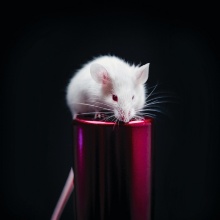The abbreviation 3R - Replacement, Reduction, Refinement - stands for internationally recognized principles for conducting animal testing - these principles are also anchored in the German Animal Welfare Act. One number demonstrates the absolute necessity of this: according to the Federal Ministry of Food and Agriculture, 2.9 million animals were used for animal testing in 2019 alone - including in Baden-Württemberg. "Baden-Württemberg is an excellent location for fundamental biomedical research and transfer; this was recently demonstrated by the rapid development of a corona vaccine in the past year", explained Minister of Science Theresia Bauer in her welcome speech. "This would not have been possible without animal testing." She went on to say, therefore it is important and ethical to develop ambitious strategies for reliable alternative methods, to ensure that animal testing is reduced to a minimum. " Baden-Württemberg is taking a new approach to improving scientific research and animal welfare in equal measure, by developing a comprehensive 3R network that incorporates all of the region's important biomedical locations.”
Using human tumor tissue instead of mice
With a series of short ten-minute lectures, the ten network partners showed how they will implement this within the framework of the 3R network. Prof. Monilola Olayioye from the Institute of Cell Biology and Immunology (IZI) at the University of Stuttgart, was also present to introduce the 3R-US project she coordinates. The aim of this project, which also involves the Institute of Biomaterials and Biomolecular Systems (IBBS) at the University of Stuttgart, and the Robert Bosch Hospital, is to develop a technology platform for drug screening for cancer, one of the leading causes of death worldwide.
Monilola Olayioye explains, "many drugs that combat tumor growth are successfully tested in preclinical trials, but the subsequent approval rate is just five percent. And tumors often don't respond, even to approved treatments". She went on to say, "One of the reasons for this is that traditional testing on mice often cannot be applied to humans. Human tumor tissue has an extremely complex composition, and this complexity cannot be truly represented using experiments on mice." That is why 3R-US wants to provide technologies and analytical methods that are primarily based on human tumor tissue, with the aim that these will gradually replace experiments on mice.
Tissue sections, 3D printing and simulations
The building blocks required to achieve this are: ex vivo (vascularized tissue sections), de novo (3D printing of tumor models) and in silico (mathematical modelling). Ex vivo means that a drug or active ingredient can be tested directly on tissue sections from human tumor tissue, which is continuously supplied with nutrients and the active ingredient. "This ensures a higher level of reliability and it improves our ability to transfer the data obtained to patients", explains Olayioye. Because the tissues can only be used once, Prof. Michael Heymann's team at IBBS is creating tissue-like structures from biomaterials and cells and cultivating these in a microfluidic system - tiny chambers that allow controlled dosing of active substances (de novo). The data from both phases will flow into the development of mathematical models (in silico), which allows realistic predictions of drug distribution in tissues. Furthermore, the tumor tissue platform is intended for use in testing therapeutic antibodies, which are being developed in collaboration with the research group led by Prof. Roland Kontermann (IZI).
"With this project, we aim to establish reliable correlations between molecular and cellular tumor characteristics, clinical parameters and treatment efficiency", says Olayioye. "By doing this, we hope to be able close the gaps between preclinical research and drug approval and to significantly reduce animal testing, or even to avoid it completely."
Contact:
Prof. Dr. Monilola Olayioye. Institute of Cell Biology and Immunology, Tel. 0711 685 69301, email



